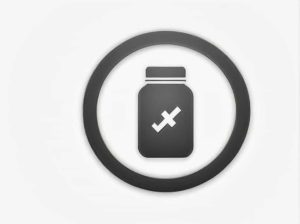Adolescence is a crucial phase in human development marking the transition from childhood to adulthood. In Class 8 Science the chapter “Reaching the Age of Adolescence” explains the physical emotional and hormonal changes that occur during this period.
This topic will cover important concepts multiple-choice questions (MCQs) and key facts to help students understand the topic effectively.
1. What Is Adolescence?
Adolescence is the period of life when a child matures into an adult. It usually begins around the age of 11 and lasts until 19 years.
Key Features of Adolescence:
- Rapid growth and development
- Onset of puberty
- Hormonal changes
- Emotional and behavioral changes
Adolescence is influenced by genetics diet environment and lifestyle.
2. What Is Puberty?
Puberty is the stage when the body undergoes changes due to the release of hormones. It marks the beginning of reproductive maturity.
Changes During Puberty:
(A) Physical Changes
- Growth in height and weight
- Development of muscles and bones
- Changes in body shape
(B) Secondary Sexual Characteristics
- Growth of facial and body hair
- Development of breasts in girls
- Deepening of voice in boys
(C) Emotional Changes
- Mood swings
- Increased self-awareness
- Need for independence
3. Role of Hormones in Adolescence
Hormones play a major role in controlling the changes during adolescence.
| Hormone | Function |
|---|---|
| Testosterone | Responsible for male puberty changes |
| Estrogen | Leads to female puberty changes |
| Growth Hormone | Controls height and development |
| Thyroxine | Regulates metabolism |
Proper nutrition exercise and sleep help in maintaining a healthy hormonal balance.
4. Nutritional Needs During Adolescence
A balanced diet is essential during adolescence for proper growth and development.
Important Nutrients:
- Proteins – Help in muscle and tissue growth
- Calcium & Vitamin D – Strengthen bones
- Iron – Prevents anemia especially in girls
- Carbohydrates & Fats – Provide energy
Eating fruits vegetables dairy products and proteins ensures good health during adolescence.
5. Hygiene and Personal Care in Adolescence
Maintaining personal hygiene is important during this stage.
Hygiene Tips:
- Take a bath daily to prevent body odor
- Use deodorants or antiperspirants
- Wash hands before eating
- Maintain oral hygiene
- Wear clean clothes
Good hygiene habits help in preventing infections and boosting confidence.
6. Adolescence and Emotional Well-being
Common Emotional Changes:
- Mood swings
- Anxiety and stress
- Peer pressure
- Desire for independence
How to Maintain Emotional Well-being?
- Talk to parents teachers or counselors
- Engage in hobbies and sports
- Practice meditation and relaxation techniques
- Avoid negative peer influence
Developing healthy relationships and self-confidence is essential for emotional stability.
7. MCQs on Reaching the Age of Adolescence
(A) Multiple Choice Questions (MCQs)
1. At what age does adolescence generally begin?
- 5-7 years
- 10-19 years
- 20-25 years
- 30-40 years
Answer: b) 10-19 years
2. Which hormone is responsible for puberty in boys?
- Estrogen
- Insulin
- Testosterone
- Progesterone
Answer: c) Testosterone
3. Which gland produces growth hormone?
- Thyroid gland
- Pituitary gland
- Adrenal gland
- Pancreas
Answer: b) Pituitary gland
4. What is the term for the release of eggs in females?
- Fertilization
- Ovulation
- Menstruation
- Implantation
Answer: b) Ovulation
5. Which of the following is NOT a secondary sexual characteristic in boys?
- Deepening of voice
- Development of facial hair
- Growth of breasts
- Increase in height
Answer: c) Growth of breasts
8. Common Misconceptions About Adolescence
(A) Adolescence Is the Same for Everyone
Not everyone experiences adolescence at the same age. It depends on genetics diet and environment.
(B) Mood Swings Are Abnormal
Mood swings are common due to hormonal changes but can be managed through healthy habits.
(C) Puberty Only Affects Physical Growth
Puberty also causes emotional and psychological changes which are just as important.
9. Tips for Parents and Adolescents
For Adolescents:
✅ Eat nutritious foods
✅ Stay active and exercise regularly
✅ Maintain hygiene and cleanliness
✅ Communicate with trusted adults
For Parents:
✅ Be supportive and understanding
✅ Provide guidance on personal care and hygiene
✅ Encourage healthy lifestyle habits
✅ Listen to their concerns without judgment
Adolescence is a significant stage in life full of growth challenges and learning experiences. By understanding the physical emotional and hormonal changes students can navigate this phase confidently.
Practicing good hygiene proper nutrition and mental well-being is key to a healthy transition into adulthood.
Keep learning stay curious and embrace the journey of adolescence!



